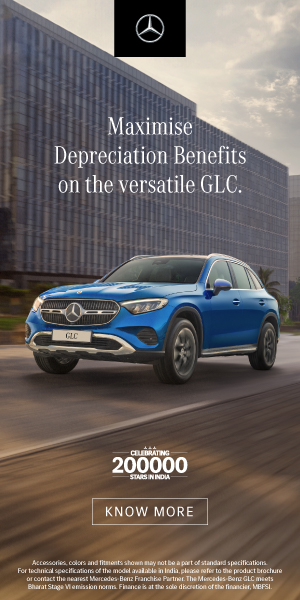Trump's 25% auto tariff creates uncertainty over India's component exports
- Cars
- 01 Apr, 2025

U.S. President Donald Trump’s proposed 25% tariff on auto imports is creating significant uncertainty for India’s automobile component exports, which heavily rely on the U.S. market. If implemented, this sweeping tariff on imported vehicles and automotive parts could disrupt India’s $20 billion auto component export industry.
Impact on India’s Auto Component Industry
India has emerged as a key player in the global auto supply chain, supplying crucial parts to U.S. automakers such as General Motors, Ford, and Tesla. The proposed tariff would significantly raise the cost of Indian exports, making them less competitive against domestic U.S. manufacturers and alternative suppliers from countries with favorable trade agreements.
According to the Automotive Component Manufacturers Association of India (ACMA), nearly 30% of India’s auto exports are destined for North America. Industry experts fear that a 25% tariff could lead to a decline in orders, force companies to absorb higher costs, or push them to explore alternative markets.
Supply Chain Disruptions and Strategic Shifts
With the U.S. being a top export destination, Indian manufacturers might have to rethink their supply chains. Companies may consider setting up local manufacturing units in the U.S. to circumvent the tariffs. Sunil Sinha, an automotive analyst at Fitch Ratings, notes, “If the tariffs are imposed, Indian suppliers will have to explore nearshoring options in Mexico or Canada, which have trade agreements with the U.S. under the USMCA (United States-Mexico-Canada Agreement).”
Reaction from Indian Auto Industry and Government
The Indian government and industry leaders have expressed concern over the potential economic impact of the tariff. The Ministry of Commerce and Industry is expected to engage in trade talks with U.S. officials to mitigate potential disruptions. Some industry experts suggest that India could negotiate a tariff exemption or preferential trade terms, given its growing importance as a global manufacturing hub.
Speaking on the issue, Deepak Jain, former President of ACMA, emphasized, “India’s auto component industry has built strong trade ties with the U.S. over the years. A sudden tariff hike could push manufacturers to shift focus towards Europe and ASEAN markets, where demand for Indian auto parts is also strong.”
Global Ramifications and Industry Outlook
If imposed, Trump’s protectionist policy could not only affect India but also disrupt global auto supply chains, impacting Germany, Japan, and South Korea, which are among the largest exporters of vehicles and auto parts to the U.S. Automakers operating in the U.S. might face higher input costs, which could lead to increased vehicle prices for American consumers.
Analysts predict that Indian manufacturers will have to diversify their export strategy, potentially focusing more on electric vehicle (EV) components, an area where India is rapidly expanding. The impact of the tariff, however, will depend on how the global trade landscape evolves in the coming years.
As uncertainty surrounds Trump’s proposed 25% auto tariff, Indian auto component exporters are on edge. While the industry is exploring countermeasures such as strategic relocations and market diversification, the potential policy shift could reshape India’s trade relations with the U.S. and influence global supply chain dynamics.
For now, stakeholders across the Indian and U.S. automotive industries await further clarity on trade policies that could redefine their business strategies in the years to come.
Latest Car News


Trump's 25% auto tariff creates uncertainty over India's component exports

Women Car Buyers on the Rise, Driving a New Automotive Trend in India

India's Automotive Industry in 2025: Three Key Trends Shaping the Future

Mercedes-Benz to Discontinue A-Class, Shifts Focus to SUVs

New Scrappage Policy to be Implemented in Delhi from April 1 – Is Your Vehicle on the List?

Hyundai Motor India to Hike Car Prices by up to 3% from April Amid Rising Input Costs

Tata Motors Unveils 2025 Tiago NRG with Enhanced Design and Features

Driverless Maserati MC20 Cielo Smashes Speed Record with 197 MPH Run

Porsche Shifts Gears, Bets Big on Combustion Engines Amid EV Struggles

Tesla Losing Ground Against Its Biggest Rival in China














